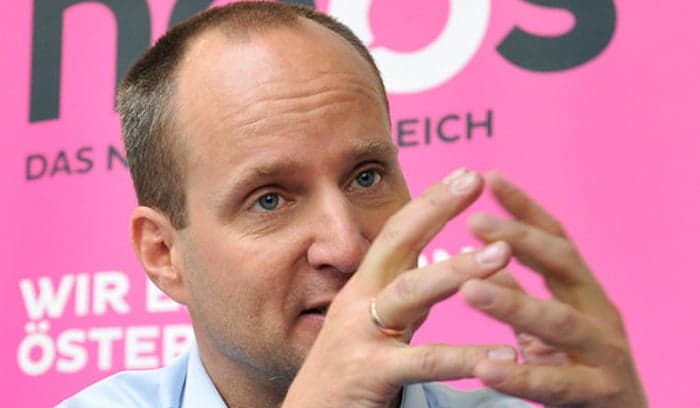Call for reform of Social Partnership

The chairman of the opposition liberal NEOS party, Matthias Strolz, has said he wants to reform the Austrian Social Partnership.
Austria has a well-developed system of co-operation between the major economic interest groups and the government. Such co-operation was essential for the reconstruction of Austria after the Second World War and created the basis for economic growth and social stability.
Strolz told the APA press agency that he is proposing to abolish compulsory membership for employees in the workers' representation union Arbeiterkammer (AK), for entrepreneurs in the Austrian Economic Chamber (WKÖ) and for farmers in the Chamber of Agriculture (LK).
This would mean that the chambers had less money to spend but were thus forced to initiate the necessary reforms, he said.
"One could do that step by step, we are not malicious revolutionaries," he said. Even if the chambers no longer had billions of euros, they would have another organisational form, he said.
Strolz also urged for an electoral law reform, including a shorter legislative term of four instead of five years. 137 out of 183 members of parliament should be directly elected, and the rest should be elected on the basis of proportional representation at federal level, he proposed.
Strolz, summarizing his proposals as "Austria 3.0", again called for the chancellor's role to be changed so that he could become more involved in the political process.
He also called for more civic involvement.
The NEOS scored a surprising success in Austria’s national elections in September last year, making it into parliament in their first try.
The newly-formed "pink party" which cooperated with the Liberal Forum (LIF) won 4.8 percent and nine seats in parliament. At the EU elections in May they came in fifth, with 7.9 percent and one mandate.
Comments
See Also
Austria has a well-developed system of co-operation between the major economic interest groups and the government. Such co-operation was essential for the reconstruction of Austria after the Second World War and created the basis for economic growth and social stability.
Strolz told the APA press agency that he is proposing to abolish compulsory membership for employees in the workers' representation union Arbeiterkammer (AK), for entrepreneurs in the Austrian Economic Chamber (WKÖ) and for farmers in the Chamber of Agriculture (LK).
This would mean that the chambers had less money to spend but were thus forced to initiate the necessary reforms, he said.
"One could do that step by step, we are not malicious revolutionaries," he said. Even if the chambers no longer had billions of euros, they would have another organisational form, he said.
Strolz also urged for an electoral law reform, including a shorter legislative term of four instead of five years. 137 out of 183 members of parliament should be directly elected, and the rest should be elected on the basis of proportional representation at federal level, he proposed.
Strolz, summarizing his proposals as "Austria 3.0", again called for the chancellor's role to be changed so that he could become more involved in the political process.
He also called for more civic involvement.
The NEOS scored a surprising success in Austria’s national elections in September last year, making it into parliament in their first try.
The newly-formed "pink party" which cooperated with the Liberal Forum (LIF) won 4.8 percent and nine seats in parliament. At the EU elections in May they came in fifth, with 7.9 percent and one mandate.
Join the conversation in our comments section below. Share your own views and experience and if you have a question or suggestion for our journalists then email us at [email protected].
Please keep comments civil, constructive and on topic – and make sure to read our terms of use before getting involved.
Please log in here to leave a comment.